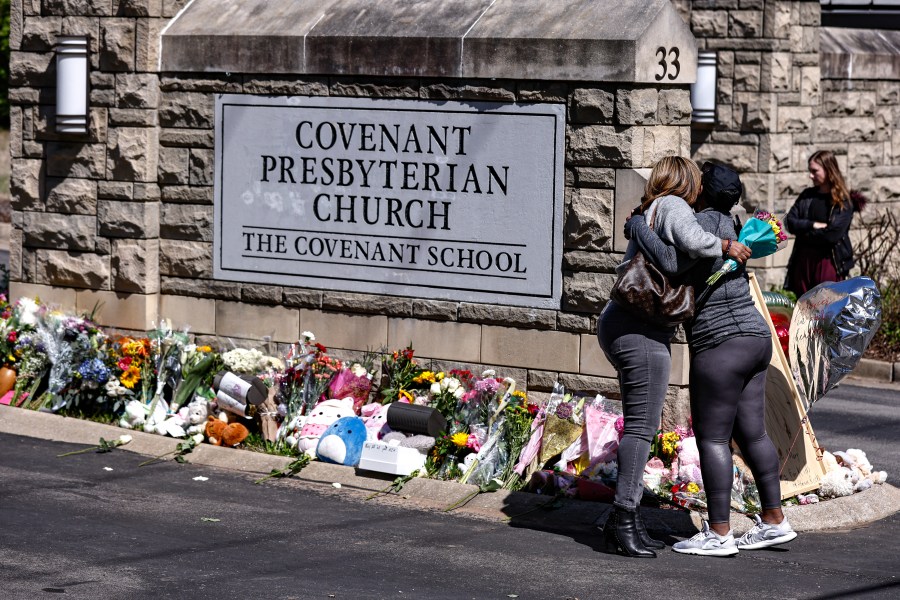(NewsNation) — After a shooting took the lives of six people at a private Christian school in Nashville, questions have come up about the motive behind the attack.
Police said they found writings by the shooter in their vehicle and bedroom. They said it is clear from what is documented in these journals that the shooting had been planned for months.
These documents have not been released.
“There’s quite a bit of writing to it,” Metro Nashville Police Chief John Drake said. “I have not read the whole entire manifesto. Our team and the FBI has been working on this.”
Whether or not the shooter’s writings should be released has become a topic of debate, along with the potential motive, which police have also not yet revealed.
Some have asked for the shooting to be characterized as a hate crime, as it targeted a Christian school.
However, Attorney General Merrick Garland said it’s the still unknown motive that will determine whether or not it was a hate crime.
A recent poll by Rasmussen showed a majority of those surveyed wanted the documents, which some people have called a “manifesto,” released.
The reason documents like these are so interesting to the public, Dr. Joni Johnston, a clinical and forensic psychologist, said is because people want to understand and prevent tragedies like the shooting from happening again.
“I think we’re all hungry for information, anything that’s going to help us better protect our children, and this is probably part of that,” she said.
Experts NewsNation spoke to urged caution in making these writings available.
Media psychologist Pamela Rutledge said while she doesn’t know what’s in the writings, it is something that should be evaluated with caution.
“If it’s something that names people and damages others’ reputations, if it incites others to violence — if it does any of those things that violates the social norms, that we would consider not protected by Freedom of the Press or Free Speech, then I would say it needs to be withheld,” Rutledge said. “If it has value in terms of understanding what happened and how to take steps to prevent this in the future, then it should be shared.”
What the really important question to Rutledge is — who gets to make the call on whether writings like these are released?
Johnston, who works with violent offenders in a variety of settings, said context is needed.

“Why are we releasing it? What is important about that information?” Johnston said. “So I think it’s important if that information is going to be released, that it be in a context that we can get something from it, and that the general public should be able to learn from it in a positive way.”
At a meeting of the Tennessee Sheriff’s Association, Tennessee Bureau of Investigation Director David Rausch said the shooter’s writings were ramblings indicating no clear motive.
Rausch said a review so far of the material found the shooter did not write about specific political, religious or social issues, according to WTVF. Instead, WTVF reported, a primary focus of the journals was idolizing those who committed previous school shootings.
“It’s been characterized as a manifesto. I think that’s a mischaracterization, personally,” Rausch said to PIJN.
One document Rausch said he viewed was specifically a plan, and the other was “journal-type rantings.”
“Ideological expressions — none of that has surfaced in these writings,” Rausch said. “It’s really unfortunate mental health issues that you can see as you read through the journals.”
Poynter, a nonprofit journalism school and research organization based in Florida, encourages media to avoid use of the word “manifesto” as it’s “probably an overblown term.”

“A manifesto is a public declaration of values and intentions,” Poynter Senior Vice President Kelly McBride wrote. “By definition, a manifesto is clear and logical. Most documents left behind by shooters are confusing, illogical attempts to justify their behavior.”
As far as when the documents could be made available, it might be a while, former FBI agent Scott Augenbaum says. When he was in the FBI, they didn’t release this information to the public until the investigation was finished — which sometimes took years.
“There’s an ongoing law enforcement investigation happening as we speak. There’s information in this manifesto that has investigative leads, (it) might lead to other motives, other individuals,” Augenbaum says. “It’s way too early to even consider having that be released to the public. We need to give law enforcement more time to process this.”